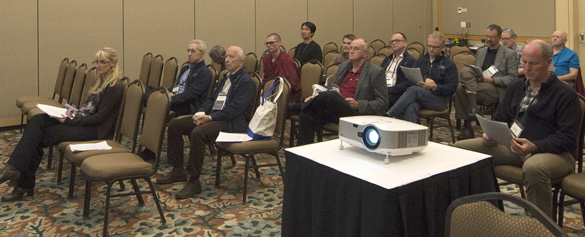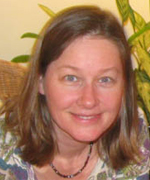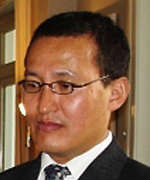
Translating Philosophical Materials A
Sarah McClintock and Thomas Doctor both engage with issues of the possibility or impossibility of translation and Dorji Wangchuck considers translation theory and practice and approaches to the ideas of translation and transmission. As all three of these speakers are well-known scholars of Tibetan Buddhism and philosophers, this session is a special opportunity to observe their thoughts and interactions, and learn from their ideas.
Event: TT Conference 2014 – Workshop
Date: October 3, 2014 – 4:30 pm
Speakers: Dorji Wangchuk, Sara McClintock, Thomas Doctor
Topics: Philosophical Materials, Translation

Sara McClintock
Emory University
Sara McClintock is Associate Professor of Religion at Emory University, where she teaches courses in Indian and Tibetan Buddhism and interpretation theory in the study of religion. She obtained her bachelor degree in fine arts from Bryn Mawr College (1983), her masters degree in world religions from Harvard Divinity School (1989), and her doctorate in religion from Harvard University (2002). Her interests include narrative, philosophy, and contemplative practices, with particular focus on issues of rationality, rhetoric, reading, embodiment, emptiness, and ethics. She is author of Omniscience and the Rhetoric of Reason: Śāntarakṣita and Kamalaśīla on Rationality, Argumentation, and Religious Authority (2010) and co-editor with Georges Dreyfus of The Svātantrika-Prāsaṅgika Distinction: What Difference Does a Difference Make? (2003). She is co-translator with John Dunne of Nāgārjuna’s Ratnāvalī and is in the early stages of a new research and translation project on the Avikalpapraveśadhāraṇīṭīkā of Kamalaśīla.

Thomas Doctor
Dharmachakra Translation Committee
Thomas Doctor has studied Buddhist philosophy at Ka-Nying Shedrub Ling Monastery in Kathmandu since the late 1980s. He teaches in the Rangjung Yeshe Institute graduate program and works for the Dharmachakra Translation Committee (DTC). Thomas received his BA and MA degrees in Tibetan Studies from the University of Copenhagen and his PhD in Buddhist Studies from the University of Lausanne. He is the author of Reason and Experience in Tibetan Buddhism: Mabja Jangchub Tsöndrü and the Traditions of the Middle Way (Routledge 2013). With DTC he has translated sūtras and tantras for the 84000 Project, as well as classics of Buddhist philosophy, such as Ornament of Reason (Mūlamadhyamakakārikā with commentary by Mabja Jangchub Tsöndrü, Snow Lion 2011) and Ornament of the Great Vehicle Sūtras (Mahāyānasūtrālaṃkāra with commentaries by Khenpo Shenga and Ju Mipham, Shambhala 2014).

Dorji Wangchuk
Khyentse Center for Tibetan Buddhist Textual Scholarship; University of Hamburg
After completing a nine-year course in the study of Tibetan Buddhism from a traditional Tibetan Buddhist monastic seminary in South India (i.e. sNga ’gyur mtho slob mdo sngags rig pa’i ’byung gnas gling, Bylakuppe, Mysore), Dorji Wangchuk studied Classical Indology (first major, with a focus on Buddhist Studies) and Tibetology (second major) at the University of Hamburg (MA, 2002). He wrote his doctoral dissertation on “The Resolve to Become a Buddha: A Study of the Bodhicitta Concept in Indo-Tibetan Buddhism” and received his PhD from the same University in 2005. Between 1992 and 1996, he taught Tibetan Buddhist monks and nuns in monastic seminaries in India. Since 1998, he has been teaching and researching at the University of Hamburg in various capacities. He also taught a term each at the University of Copenhagen and McGill University. Currently he is a professor for Tibetology at the Department of Indian and Tibetan Studies, Asia-Africa Institute, Faculty of Humanities, University of Hamburg.
